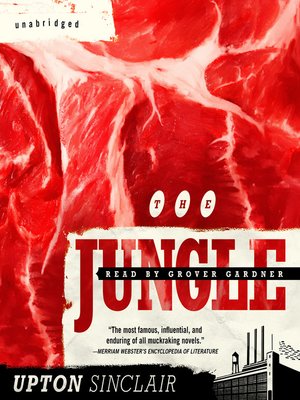

Jurgis misses work after spraining his ankle. A harsh winter falls on the city, once again taking a toll on Jurgis and his family. Ona, who has become pregnant and given birth to a son, is in poor health after returning to work too soon to recover from child birth. House expenses continue to trouble Jurgis and his family. Jurgis becomes aware of the many corrupt practices that are prevalent in various industries.

Jurgis learns english as his involvement in the union increases. Jurgis convinces the rest of the family to join the union as the becomes deeply devoted to its cause. Jurgis is once again confronted by union representatives and agrees to join. The harsh winter in Packingtown intensifies the hardships of the family. Ona and Elzbiata are constantly sick, while Antanas develops a cough and open sores from work. Jurgis and Ona begin planning for their wedding. Jurgis is told the history of his house, only to learn it is neither new or bought at a fair price.

Both Antanas and Marija find jobs, however the circumstances surrounding each job are questionable. The expense of owning the house begins to absorb all of the family's money, while Jurgis is approached by union personnel. Jurgis reports to the plant as Jonas and Marija both continue to look for employment. Jurgis witnesses the processes inside a beef and pork packing plant. Their decision to immigrate to Chicago is met with a series of encounters with corrupt agents and officials. More of Jurgis's and Ona's life in Lithuania is revisited. Jurgis looks for work and is temporarily hired at Brown and Company. Jurgis and Ona's past in Lithuania is revisited. Jurgis and Ona celebrate their wedding, however so little money is received from the guest that Jurgis can't pay for the reception. As such the book is deeply supportive of values and criticisms held by Communism, a movement still in its infancy at the time. Sinclair wanted to show how the mainstream parties of American politics, already being tied into the industrial-capitalist machine, offered little means for progressive change. The novel is also an important example of the “muckraking” tradition begun by journalists such as Jacob Riis. The sad state of turn-of-the-century labor is placed front and center for the American public to see suggesting that something needed to be changed to get rid of American “wage slavery”. The novel depicts in harsh tones the poverty, complete absence of social security, scandalous living and working conditions, and generally utter hopelessness prevalent among the have-nots, which is contrasted with the deeply-rooted corruption on the part of the haves. It describes the life of a family of Lithuanian immigrants working in Chicago’s Union Stock Yards at the beginning of the 20th century. The Jungle is a novel by American author and socialist Upton Sinclair.


 0 kommentar(er)
0 kommentar(er)
